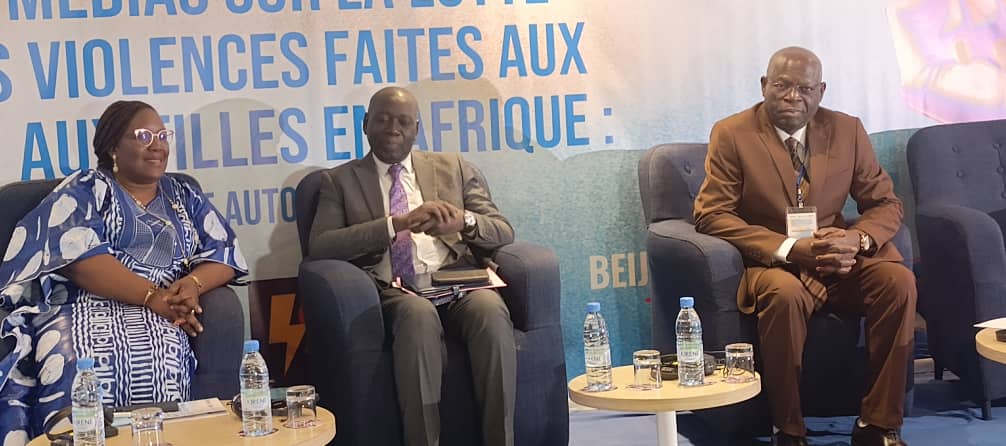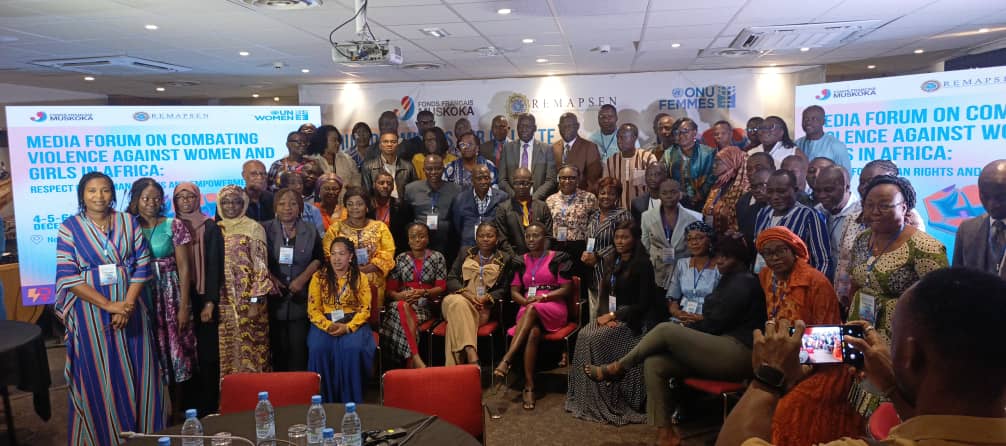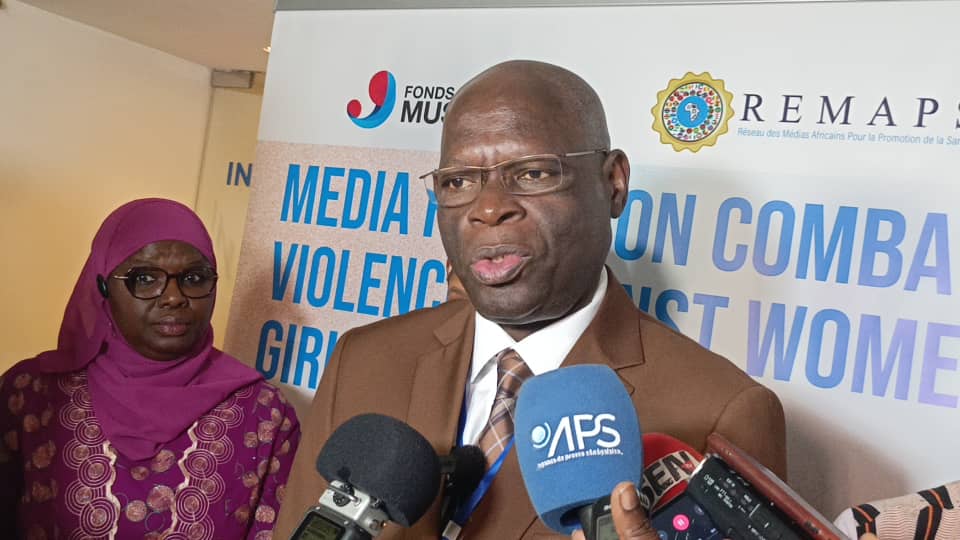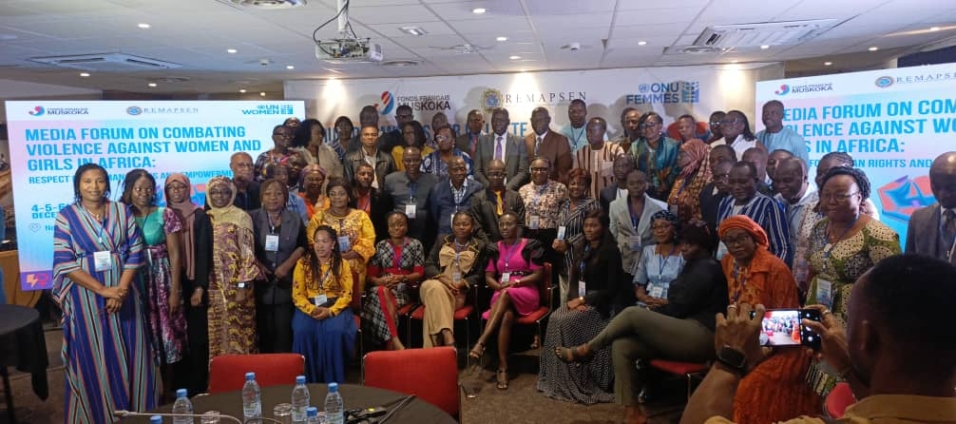Every ten minutes, a woman loses her life at the hands of an intimate partner or family member.
This harrowing reality is highlighted in the “Femicides in 2023: Global Estimates of Intimate Partner/Family Member Femicides” report by the UN Women and the United Nations Office on Drugs and Crime (UNODC).

In response to this crisis, a continental media forum on combating violence against women and girls in Africa has opened in Senegal.
Organized by the Africa Media Network for Health & Environment Promotion (REMAPSEN) with support from UN Women and Fonds Français Muskoka, the forum focuses on "Respect for Human Rights and Empowerment of Girls and Women."
It seeks to mobilize the media’s role in amplifying women’s rights and dismantling one of Africa’s most pressing human rights challenges - gender-based violence.

In his opening remarks, the President of REMAPSEN, Bamba Youssouf, emphasized the critical role of the media in reversing this devastating trend.
“When borders are open, they must be open to human rights,” he declared, urging media practitioners to become advocates for dignity and care for women across the continent.
Deputy Regional Director of UN Women for West and Central Africa, Mireille Kamitatu, underscored the grim statistics: “Every ten minutes, a woman is killed by an intimate partner. Sixty percent of female homicides are committed by someone they care about.”

She described violence against women as a blatant violation of human rights and called on the media to expose these realities, champion survivors, and demand transformative action.
“No country in Africa has yet eliminated violence against women,” Kamitatu revealed, pointing to persistent practices like child marriage and female genital mutilation.
“We need bold legislation, transformative political will, and determined actions to end impunity and dismantle harmful societal norms,” she urged.
The forum, which coincides with the global 16 Days of Activism Against Gender-Based Violence, has brought together 65 participants, including journalists, advocates, and policymakers.
Through collaborative sessions, they aim to craft actionable strategies to challenge narratives that normalise abuse, amplify survivor voices, and promote inclusive policies that protect women’s rights.
Representing Senegal’s Minister of Family and Solidarity, Oumar Sanab reaffirmed the government’s commitment to addressing gender inequality and violence.

“Transforming mentalities is key. This is not just a fight for women; it is a fight for the future of our continent,” he said.
As discussions unfold, the forum holds the promise of sparking bold, collaborative actions that will ensure women and girls across Africa are no longer silenced, but empowered to thrive in societies that respect their dignity and rights.
Latest Stories
-
Jamie Foxx reveals he had a stroke in 2023
3 hours -
Ghanaian-based in Essex nail artist cries after seeing her work in Wicked
3 hours -
Joy FM’s Super Morning Show hosts Omane Boamah to give insights on NDC’s historic Election Victory
4 hours -
Ghana Philanthropy Conference 2024 focuses on driving volunteerism as a catalyst for nation-building
4 hours -
Akosua Frema Osei-Opare chairs government transition team
4 hours -
MiNaK Foundation to embark on community care and support initiative on Dec 14
5 hours -
Employers urged to prioritise mental health in workplace
5 hours -
ADC congratulates Mahama on landmark victory
5 hours -
NDC celebrates historic victory in Volta region
5 hours -
NDC USA chapter congratulates Mahama, Jane Naana and NDC MPs on landslide victory
5 hours -
Sound of Christmas kicks off yuletide with joyful praise in Manchester, UK
5 hours -
Election 2024 outcome is “verdict of a justifiably angered nation” – Boakye Agyarko tells NPP
5 hours -
No blame game – Bawumia urges NPP as party faithful troop in
6 hours -
Ghana Armed Forces warns against attacks on security personnel
6 hours -
We’re disappointed with Police ‘lackadaisical’ handling of unfolding lawlessness – NPP
6 hours

